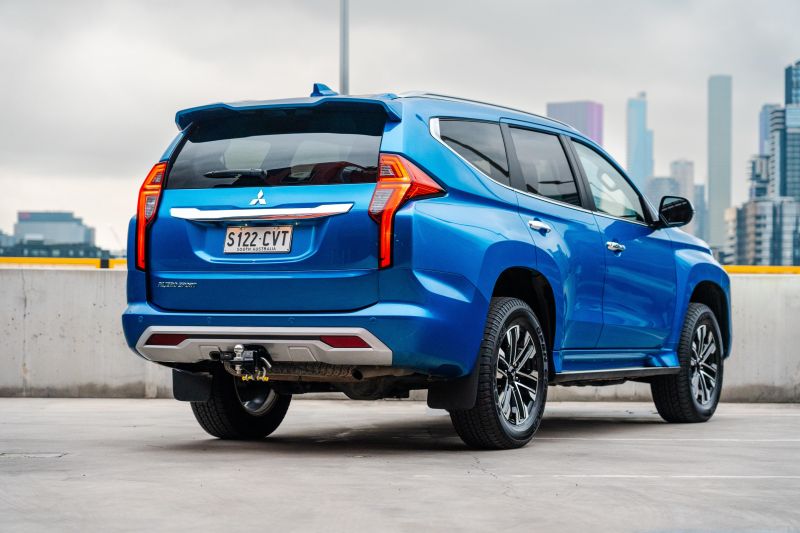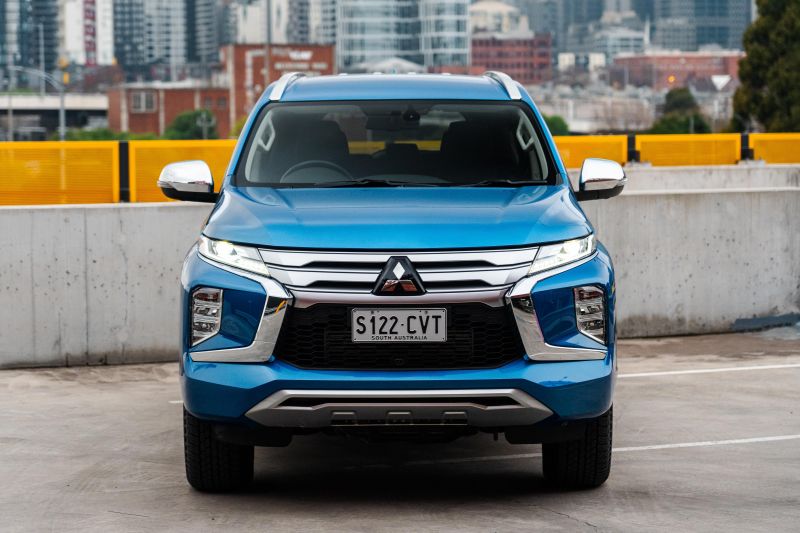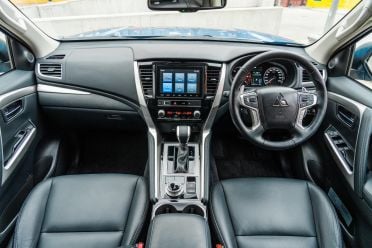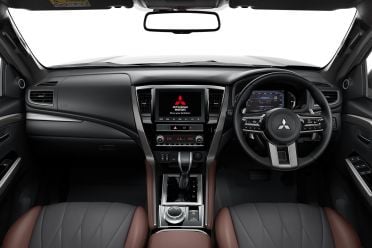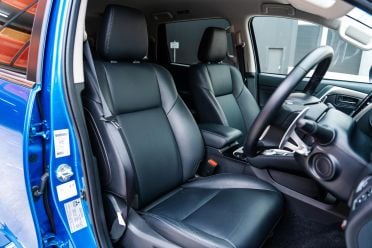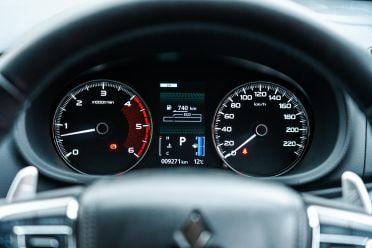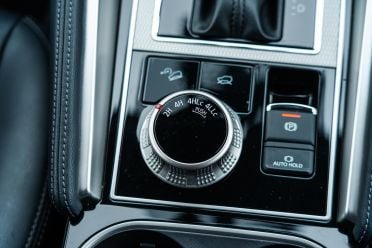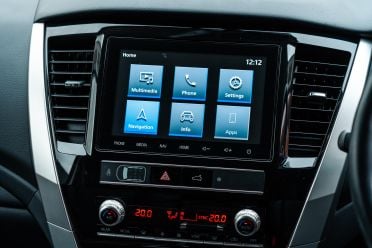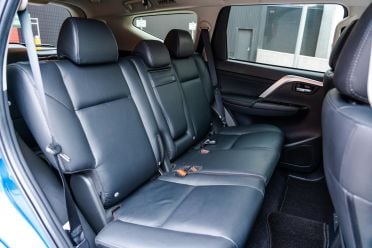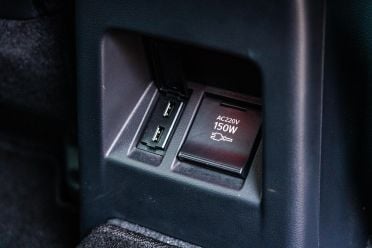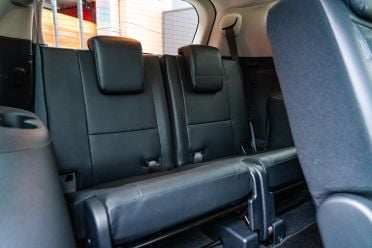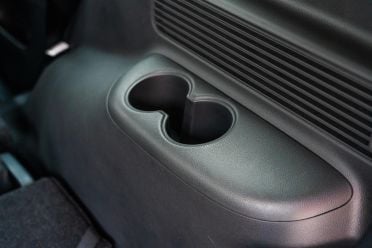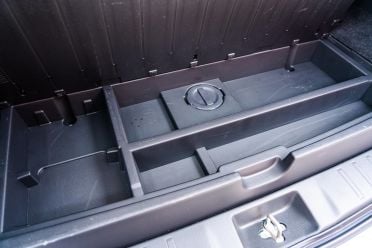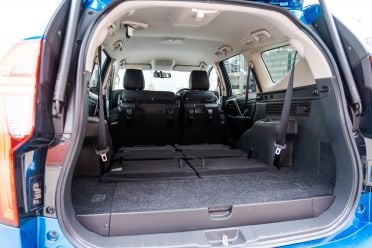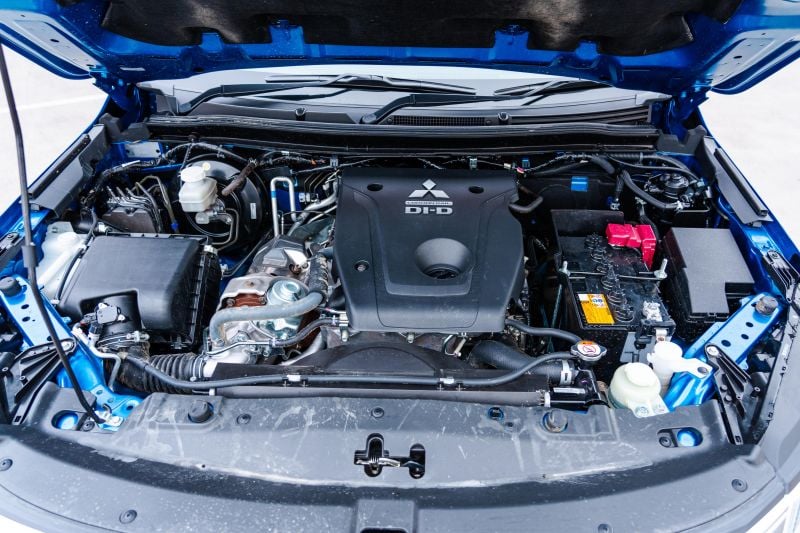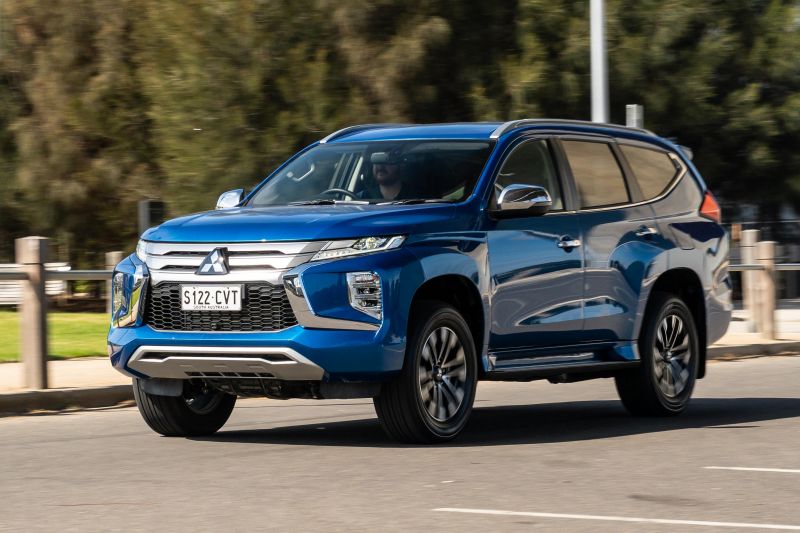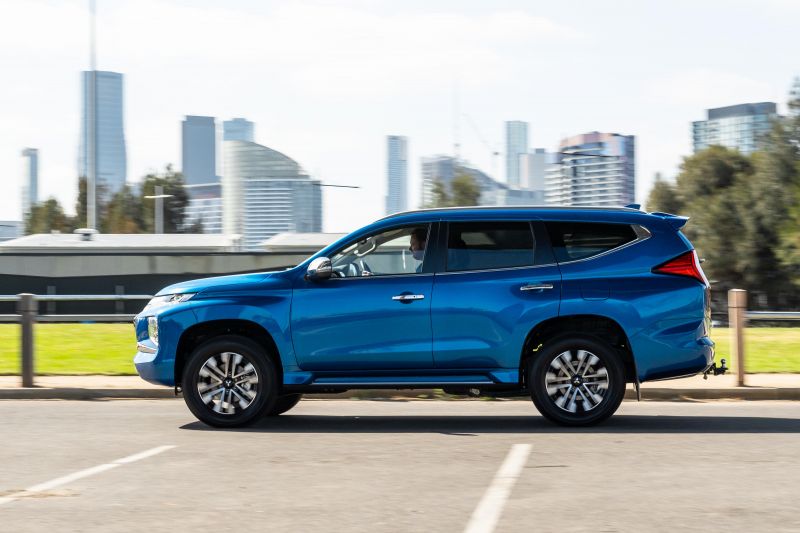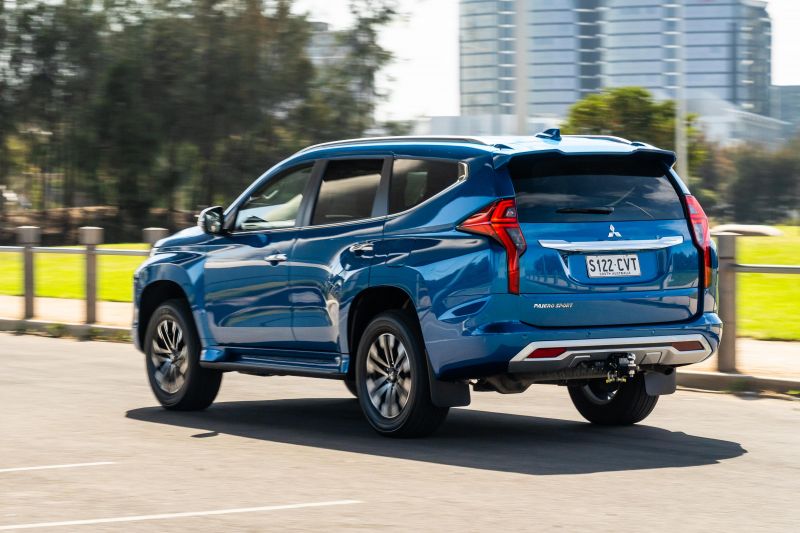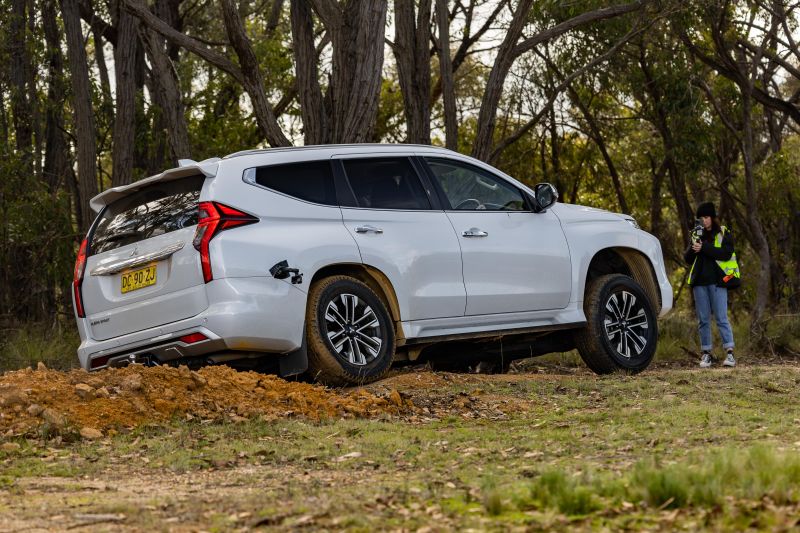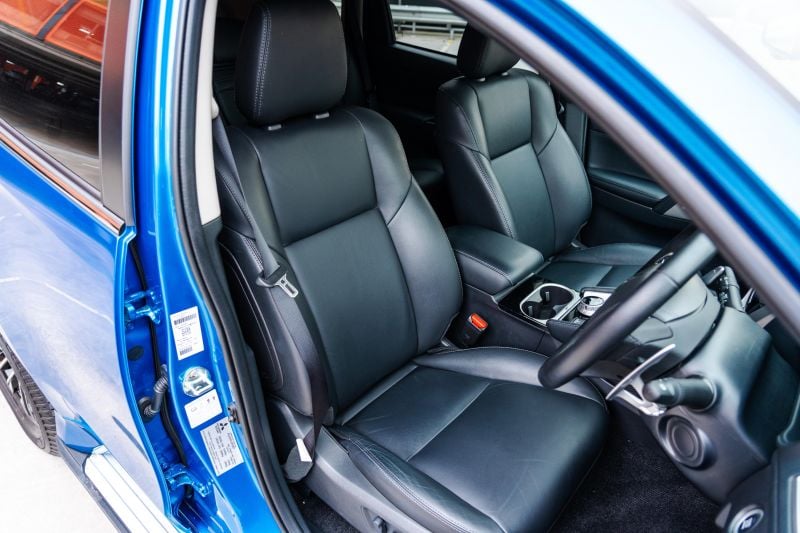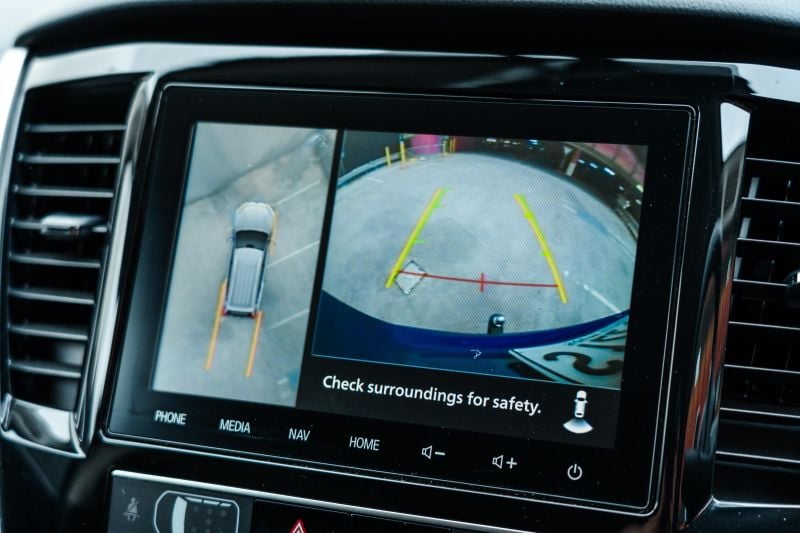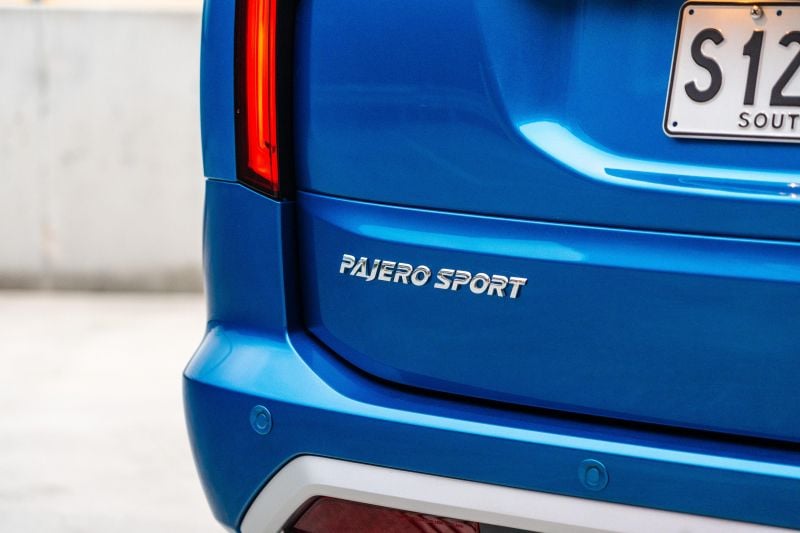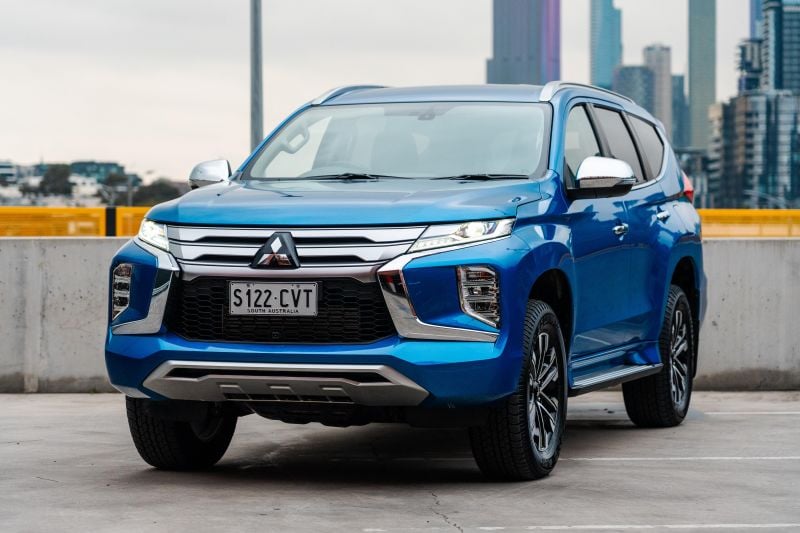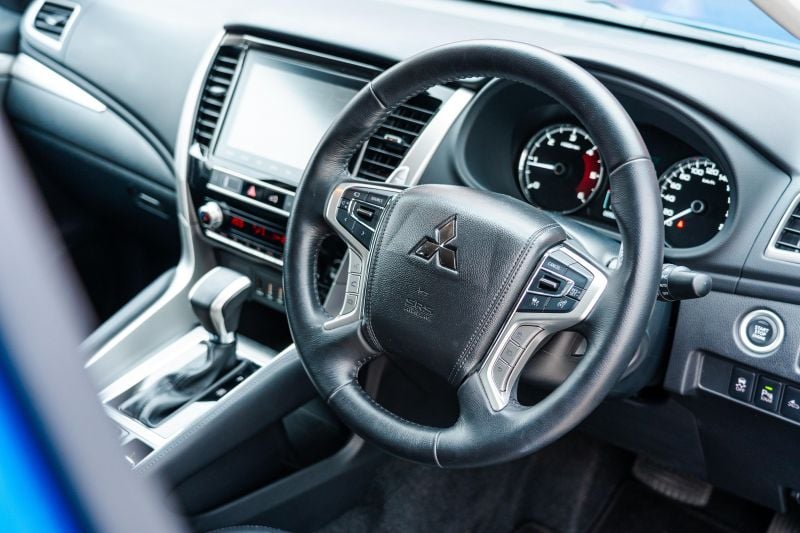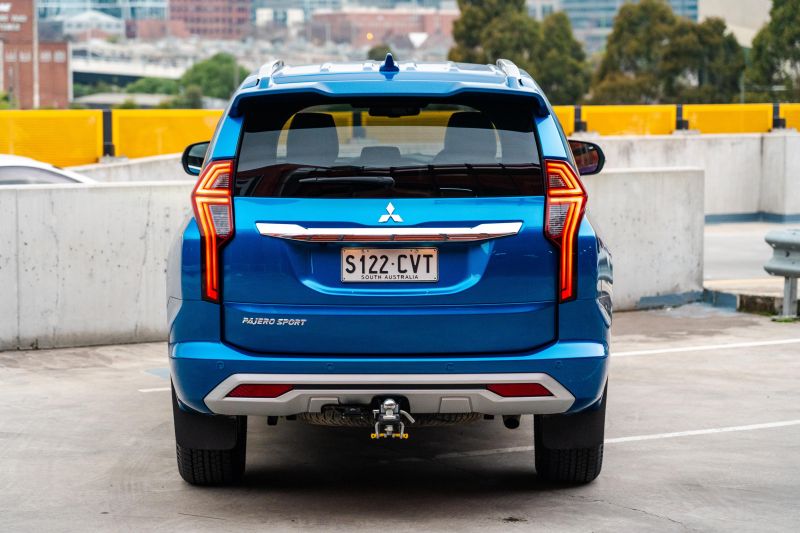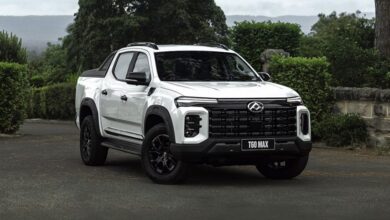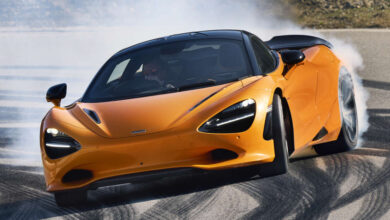2024 Mitsubishi Pajero Sport review
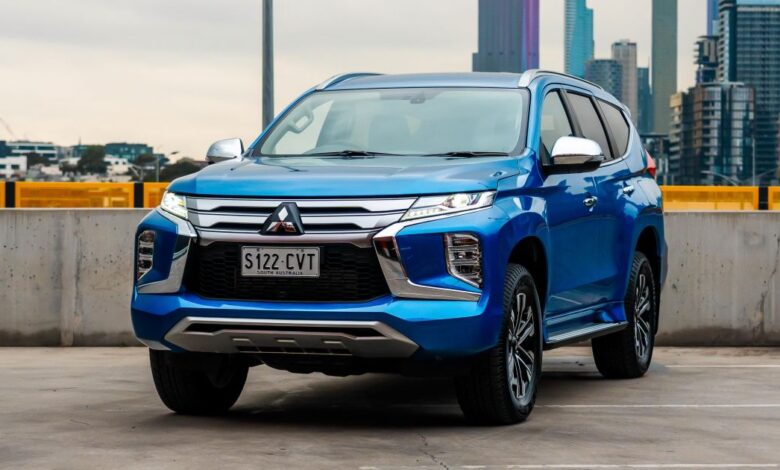
The third generation Mitsubishi Pajero Sport is approaching a major milestone – get ready to wish it a happy 10th birthday in 2025!
That’s a long innings for a modern car, and some models age more gracefully than others. Mitsubishi has updated the current Pajero Sport several times over its long life, but today’s rivals are young and fresher.
Since the turn of the decade, Ford and Isuzu have all launched new versions of the Everest and MU-X, respectively. Meanwhile, the Pajero Sport looks much the same as it did back in 2015.
The car on test here is a pre-update model. There are exterior cosmetic tweaks and a new three-spoke steering wheel for 2024, but it’s hardly a major update. Prices are up as well, to the tune of $1700 for the GLS on test here.
The big, bulky Triton-based SUV clearly still holds appeal to Australian new car buyers, as 4356 were sold over the first half of this year.
But is it time to pivot towards fresher metal, leaving the Pajero Sport to enjoy a quiet retirement?
How does the Mitsubishi Pajero Sport compare?
View a detailed breakdown of the Mitsubishi Pajero Sport against similarly sized vehicles.

Mitsubishi
Pajero Sport
How much does the Mitsubishi Pajero Sport cost?
The GLS on test here sits in the middle of the Pajero Sport range, as the cheapest of the seven-seat variants.
| Model | Price before on-road costs |
|---|---|
| 2024 Mitsubishi Pajero Sport GLX 4×4 5-seat | $51,540 |
| 2024 Mitsubishi Pajero Sport GLS 4×4 7-seat | $56,890 |
| 2024 Mitsubishi Pajero Sport Exceed 4×4 7-seat | $62,590 |
| 2024 Mitsubishi Pajero Sport GSR 4×4 7-seat | $64,840 |
Our tester was optioned with Impulse Blue exterior paint ($740) and the Deluxe Option ($2350), bringing the total drive-away price to $63,030 for Victorian buyers.
To see how the Pajero Sport lines up against the competition, check out our comparison tool.
What is the Mitsubishi Pajero Sport like on the inside?
The Mitsubishi Pajero Sport is like a big time machine – clamber in and you’re transported back to 2015.
Note there are slight differences between the Pajero Sport on test here and the MY24 update. The latter has the new Triton’s steering wheel, and the Exceed and up receive updated graphics in their 8.0-inch digital instrument cluster.
From the driver’s seat your eyes are immediately drawn to the old-school infotainment and instrument setups in this GLS spec.
Front and centre is the 8.0-inch infotainment touchscreen, with its pixelated graphics and basic set of features. You get a dated navigation system, DAB radio, a choice of audio outputs, and not much else.
As such, I defaulted to smartphone mirroring every time I fired up the Pajero Sport, which requires a wired connection. Apple CarPlay was reliable, and it disguises the shortfalls of the system.
The instrument cluster is also a throwback, with a small central display flanked by analogue gauges. For a family off-roader like this it’s not so bad, and the screen still displays important data such as trip information, fuel economy, and 4WD settings.
Of all the interior technology in the Pajero Sport, the climate controls have held up best. It has a row of physical buttons complemented by user-friendly rotary knobs and a rectangular screen, which isn’t too dissimilar from many modern setups. The GLS variant gains dual-zone climate control over lower grades.
It represents a brief distraction from the rest of the cabin, which remains frozen in time. Take the dual USB-A outlets located directly below, for example.
Material quality benefits from the optional Deluxe Package fitted to our tester, consisting of leather seats (powered up front) and a surround-view camera.
Seat heating would’ve been nice for the $2350 you spend, though. The pews are a little slippery and not the most comfortable I’ve sampled, although you sit nice and high with a commanding view of the road.
Surrounding surfaces are trimmed in a combination of soft and hard plastics, as well as some faux-leather. Everything appears hard-wearing, which fits the rugged, workmanlike character of the car.
The main touch points are pleasant to come into contact with – the centre console is soft and there’s padding on the door panel to rest your elbow on.
Similarly, the steering wheel feels soft yet sturdy and comes equipped with solid metal shift paddles. The button layout is a bit messy, though.
For a large SUV, the Pajero Sport ought to offer more cabin storage. Skinny door bins and an unimpressive centre console undermine the ample space available, so larger items will end up in the generous glovebox.
There’s a phone slot under the dash, and a sunglasses holder that pops down from the ceiling.
Space is also an issue back in the second row, both from a passenger comfort and storage perspective.
I was just about able to get comfortable behind my driving position, but leggy adults will be cramped. Headroom is also an issue for taller adults – the bench doesn’t slide either, so there’s no way to improve the situation.
Between the ceiling-mounted air vents, large windows and light-coloured headliner the rear rows at least feel bright and airy, which keeps claustrophobia at bay.
Storage is limited to average-sized door bins and map pockets, with flimsy retractable cupholders located in the armrest. Two USB-A outlets are there to keep the kids online.
Considering what’s on offer in the second row, I was surprised to find that third row passengers get a decent deal.
The second row folds over itself, enabling easier ingress into the ‘back-back’.
Once seated, you’ll find there’s enough room for children and smaller adults, and the reclined chairs provide a comfortable seating position. Amenities include cupholders, ceiling vents and a 12V outlet.
With the school footy team occupying all seven seats, the Pajero Sport has 131L of boot space. Drop the third row and you get 502L, which is more usable but less than the 673L in the base five-seat GLX.
Regardless of configuration, it’s less cargo room than you get in an Isuzu MU-X or Ford Everest.
With that said, extra storage space is available under the boot floor in seven-seat Pajero Sport models. Unlike the base five-seater, the GLS also comes with a power tailgate.
| Dimensions | Mitsubishi Pajero Sport GLS |
|---|---|
| Length | 4825mm |
| Width | 1815mm |
| Height | 1835mm |
| Wheelbase | 2800mm |
| Ground clearance | 218mm |
| Kerb weight | 2195kg |
| Cargo capacity | 131L (7 seats) 502L (5 seats) 1575L (2 seats) |
To see how the Pajero Sport lines up against the competition, check out our comparison tool.
What’s under the bonnet?
The 2024 Mitsubishi Pajero Sport is exclusively powered by a 2.4-litre four-cylinder turbo-diesel engine, which produces 133kW of power and 430Nm of torque.
| Specifications | Mitsubishi Pajero Sport GLS |
|---|---|
| Engine | 2.4L 4cyl turbo-diesel |
| Transmission | 8-speed automatic |
| Power | 133kW |
| Torque | 430Nm |
| Drive type | Four-wheel drive |
| Fuel type | Diesel |
| Fuel tank capacity | 68L |
| Fuel economy (claimed) | 8.0L/100km |
| Fuel economy (as tested) | 11.0L/100km |
| Towing capacity | 3100kg |
| Towball download | 310kg |
| Gross Vehicle Mass (GVM) | 2775kg |
| Gross Combined Mass (GCM) | 5565kg |
| Ground clearance | 218mm |
To see how the Pajero Sport lines up against the competition, check out our comparison tool.
How does the Mitsubishi Pajero Sport drive?
Many aspects of the Pajero Sport are dating after nearly a decade of production, but it remains competitive in the driving stakes.
The car is set up for off-road duties, equipped with drive modes to configure the car for different off-road surfaces, switchable four-wheel drive with low-range, hill descent control, and a rear differential locker.
Unlike rivals like the Isuzu MU-X and Toyota Fortuner, the four-wheel drive system in the Pajero Sport can be operated on sealed surfaces without risk of differential binding. That means when it rains, you have the added security of four-wheel drive traction on the school run.
You also get 218mm of ground clearance, 30-degree approach and 24-degree departure angles, 700mm wading depth, and an 11.2m turning circle.
It’s at home off the blacktop, which makes up a big portion of the appeal of the Pajero Sport. Several affordable 4×4 seven-seaters trump the Mitsubishi for luxury and refinement, but not all are as capable when the tarmac disappears – as we discovered during our 4WD SUV Mega Test.
On the road, the Pajero Sport feels similar to other ladder-frame SUVs such as the Isuzu MU-X and Ford Everest.
The 2.4-litre four-cylinder diesel engine produces 133kW, which is par for the segment aside from the 154kW Ford Everest, and its 430Nm of torque is a little down on ute-based SUV rivals.
As such, the Pajero Sport gets around at a casual pace. Trying to force some urgency leads to a lot of noise and minimal progress – we’ve previously recorded a 0-100km/h sprint of 11.7 seconds – so the motor works best when operated gently and smoothly.
The transmission will also thank you, as it’s programmed to keep revs down and save fuel. Don’t let those big, metallic paddle shifters tempt you into some motorsport-inspired driving.
It feels relatively refined when driven sensibly, and you get decent fuel economy. This test produced an average of 11L/100km, which can be chalked down to peak-hour commuting, but the official claim of 8.0L/100km tops both the Skoda Kodiaq and Isuzu MU-X.
Auto-hold is on hand when you get caught in traffic, as I often did in Melbourne. It’s a handy feature that gives your right foot a break.
As well as being down on grunt, the Pajero Sport lacks any real dynamism when taking on corners, both in urban and rural settings.
The soft, floaty suspension tune makes the Pajero Sport feel more comfortable than some rivals in the city, although it’s not a class leader. There’s lots of body roll on twisty roads, despite the Sport name.
Slow, heavy steering at low speeds contributes to the cumbersome driving experience, especially when matched up against an Everest or MU-X. With that said, the surround-view camera came in handy when parking this bulky beast at crowded shopping centres.
The Pajero is best equipped for cruising on the highway, rather than lumbering around the city.
The diesel engine settles down nicely at a cruise, and the soft suspension gives the Pajero Sport a relaxed feeling at the legal limit in Australia. Overtakes require some advance planning though; when you put your foot down the transmission takes its time kicking down, and the four-cylinder diesel isn’t what you’d call a monster.
Adaptive cruise control does the job, although the four-cylinder under the bonnet sometimes lacks the grunt to return to the set speed in a timely manner after slowing in traffic.
What do you get?
The Mitsubishi Pajero Sport comes in four trim levels and two seating configurations.
Pajero Sport GLX standard equipment:
- 5 seats
- Revised 18-inch alloy wheels
- Automatic LED headlights
- LED fog lights, daytime running lights
- Rain-sensing wipers
- Power-folding exterior mirrors
- 8.0-inch touchscreen infotainment system
- Wired Apple CarPlay and Android Auto
- DAB digital radio
- Paddle shifters
- Electronic parking brake
- Adjustable speed limiter
- Keyless entry and start
- Three-spoke leather-wrapped steering wheel
- Tilt and telescopic steering wheel adjustment
- Climate control air-conditioning
- Black cloth upholstery
- 4-speaker sound system
Pajero Sport GLS adds:
- Two-tone 18-inch alloy wheels
- 7 seats
- Dual-zone climate control
- 6-speaker sound system
- Tyre pressure monitoring
- Automatic headlights
- Rain-sensing wipers
- Rear floor storage box
- Privacy glass
- Power tailgate
Options
The following optional features were fitted to our test vehicle.
Price as tested: $63,030 D/A (Victorian postcode)
Is the Mitsubishi Pajero Sport safe?
The 2024 Mitsubishi Pajero Sport is currently unrated by ANCAP, as its five-star rating from 2015 expired after six years.
Standard safety features include:
- 7 airbags incl. driver’s knee
- Autonomous emergency braking (AEB)
- Adaptive cruise control
- Reversing camera
- Rear parking sensors
The Pajero Sport Exceed and GSR gain blind-spot monitoring, front parking sensors, a surround-view camera (with a steering wheel switch) and rear cross-traffic alert.
How much does the Mitsubishi Pajero Sport cost to run?
Mitsubishi’s standard warranty covers five years or 100,000km of driving, but you can extend this to 10 years or 200,000km of coverage providing it is serviced on time through a Mitsubishi dealer.
The 2024 Mitsubishi Pajero Sport requires servicing every 12 months or 15,000km, whichever comes first.
| Service interval | Cost |
|---|---|
| 12 months/15,000km | $449 |
| 24 months/30,000km | $549 |
| 36 months/45,000km | $499 |
| 48 months/60,000km | $849 |
| 60 months/75,000km | $549 |
| 72 months/90,000km | $949 |
| 84 months/105,000km | $749 |
| 96 months/120,000km | $999 |
| 108 months/135,000km | $899 |
| 120 months/150,000km | $999 |
| Total | $7490 |
CarExpert’s Take on the Mitsubishi Pajero Sport
The Mitsubishi Pajero Sport isn’t the value family 4WD it used to be.
It’s dated inside, with less storage space and fewer features to get excited about. Key safety tech is also missing compared to newer rivals, and the Pajero Sport doesn’t make much sense for the school run.
Sure, it’s been solid off-road in our previous testing, but that’s specific to one group of buyers. Competitive pricing once set this big family four-wheel drive apart, and could excuse its growing list of flaws. That’s no longer the case.
For the price of the GLS with Deluxe Option tested here, buyers who won’t head off-road can get behind the wheel of a fully loaded Nissan X-Trail Ti-L with thousands to spare.
If you’re set on a ladder-frame SUV for mixed school run and campground duties, it’s a small step to a Ford Everest Ambiente or Isuzu MU-X LS-T. Both offer a more refined driving experience, and the Isuzu in particular matches the Pajero Sport when it comes to interior niceties like leather trim.
Regardless of how you option it, the Pajero Sport doesn’t look or feel particularly luxurious. That means you’re smarter to opt for the GLS without the Deluxe Pack, pocket the extra cash, and invest it in a driving holiday… or some off-road modifications.
With a slightly lower sticker price the Mitsubishi makes more sense as solid, rugged family transport.
Click the images for the gallery
MORE: Buy a Mitsubishi Pajero Sport
MORE: Everything Mitsubishi Pajero Sport
